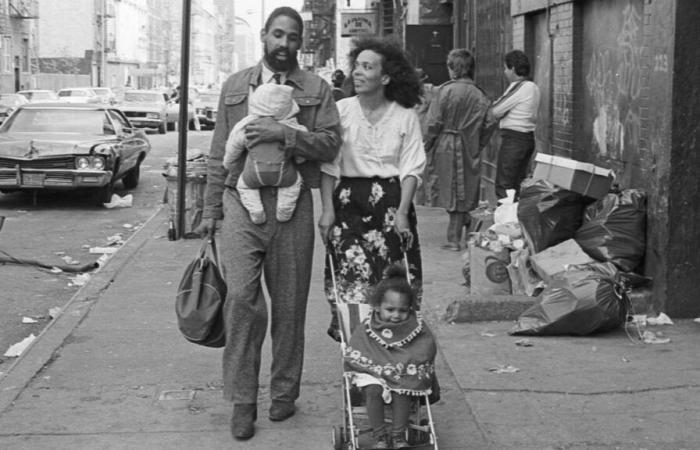“Now I’m exhausted from being happy, so I risk not telling things well.” So says Alison Mills Newman, 21 years old at the time she wrote Francisco – With all due respect, we can say that she is wrong. She tells it so well that her book, first published in 1974, out of print for several decades, has just been reissued and then published by Editions Zoé in a translation by Serge Chauvin.
“The things” she mentions are the consequences of a founding event from which springs the happiness which fills this short self-fictional novel: the meeting, at the beginning of the 1970s, between Alison Mills Newman, actress, the first black teenager to have obtained a role in a television series, and her future husband, the filmmaker Francisco Toscono Newman (1945-2003), “too cute with his flamboyant conquistador mustache”. He works with few resources and shoots mainly with black actors. She has just slammed the door on her Hollywood career, disgusted by the indecent propositions of “bald, fat, graying old producers”. She refuses to be forced to wear straight wigs to meet the beauty standards of a white society that rejects her – rather than sell out her soul, she prefers to give up fame. They are made for each other.
Maya Angelou et Mohamed Ali
Francisco goes far beyond the chronicle of a relationship that will last “until death [les] separates” – these are the last words of the book. Alison and Francisco are close to the Black Arts Movement, frequent Californian intellectuals, constantly debate art and politics and swear by “creativity, which inspires the soul of man, which illuminates the spirit of man and opens him to the benefits of a positive and lively life.
She studied with Maya Angelou, met Mohamed Ali, she went on stage with Ornette Coleman. He sleeps under a Pan-African flag, interviewed Angela Davis in prison, dreams of changing the world. When they meet their friends – and this happens to them often – the discussions revolve around “Angela, the white people who are the kings of plagiarism, of the plundering of [leur] culture” and black men who prefer light-skinned women.
Jazz phrasing
Alison Mills Newman is not shy about expressing her opinions – she is often criticized for having a “big mouth”. Francisco is also cut from this raw verve. Like a spontaneous diary, the paragraphs flow, led by his frankness. It’s hard not to compare his lively writing, without capital letters and little punctuation, to the rhythmic phrasing of jazz. Alison Mills Newman uses digressions, syncopations and improvisations even in the portraits of her contemporaries – stoned artists and overrated actresses who cross her path with their “straightened straightened slicked back” hair, their corduroy pants and their platform shoes : California seventies et arty seen by a woman from the African-American middle class, driven by the cause of her people and galvanized by a carnal passion.
Fifty years later, a twist: in the afterword to the reissue of FranciscoAlison Mills Newman distances herself from “the very crude language and the life of fornication” which were once hers, before her evangelist conversion. These three pages of repentance give the text additional relevance, as the vestige of an America where the cult of freedom has given way to that of God.
Narrative. Alison Mills Newman, Francisco, translated by Serge Chauvin, Ed Zoé, 155 pages






